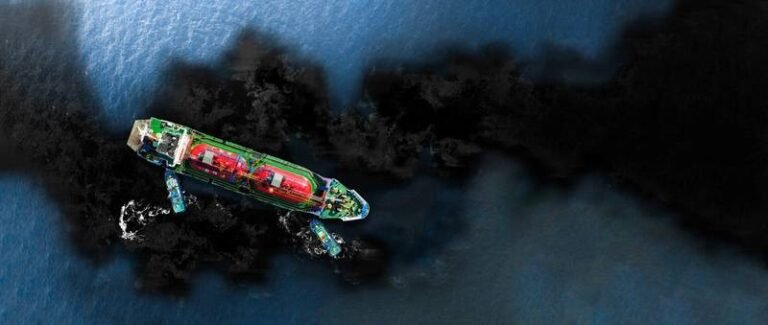Oil Spill Disaster Hits Russian Black Sea Coast
Recent reports have highlighted a major environmental crisis unfolding along the Russian Black Sea coast, following a series of maritime accidents involving oil tankers. The aftermath of these incidents has resulted in a significant oil spill that has affected several coastal areas, raising concerns about the potential environmental impact on the region.
Multiple Tankers in Distress
According to regional officials, two tankers, the Volgoneft 212 and the Volgoneft 239, were severely damaged during a storm in the Kerch Strait. The vessels, both over 50 years old, were carrying a total of 9,200 metric tons of oil products, heightening fears of a large-scale environmental disaster. Additionally, a third tanker issued a distress signal near the port of Kavkaz, although no oil spillage occurred, and the crew was reported safe.
Extent of the Spill
Reports indicate that spilled oil has washed up along tens of kilometers of the Black Sea coast, between the towns of Temryuk and Anapa. Local authorities have declared a state of emergency in affected areas, with efforts underway to contain and mitigate the impact of the oil spill on the shoreline and marine ecosystems.
Environmental Concerns
The Kerch Strait, where the incidents occurred, is a critical area for migrating dolphins and other sea mammals. Scientists have expressed concerns about the potential harm to marine life and ecosystems in the region, emphasizing the need for swift and effective response measures to address the environmental fallout from the oil spill.
Response and Cleanup Efforts
Russia’s Natural Resources and Ecology Ministry has acknowledged the leakage of fuel oil into the sea, although the full extent of the spillage remains unclear. Efforts are underway to assess and contain the damage, with concerns raised about the possibility of fuel oil sinking to the seabed due to cold weather conditions.
Implications for Shipping Industry
The incidents have underscored the risks and challenges faced by the shipping industry, particularly in ensuring compliance with environmental standards and preventing accidents that could lead to oil spills. The presence of “shadow” tankers in open sea lanes has raised concerns about potential collisions and environmental hazards posed by non-compliant vessels.
As the situation continues to unfold, authorities, environmental organizations, and the shipping industry must work together to address the immediate impacts of the oil spill and implement measures to prevent similar incidents in the future.
(Source: Reuters – Reporting by Vladimir Soldatkin; Editing by Mark Trevelyan)

